Here are my favorite poems about lions categorized:
- Short poems about lions
- Poems about lions that rhyme
- Poems about the lion king
So if you want the best poems about lions, then you’re in the right place.
Keep reading and enjoy!
- 21 Elating Poems About Swallows
- 35 Gleeful Poems About Rabbits
- 37 Unflinching Poems About Wolves
- 21 Heart-Fluttering Poems About Butterflies
- 53 Free-Spirited Poems About Horses
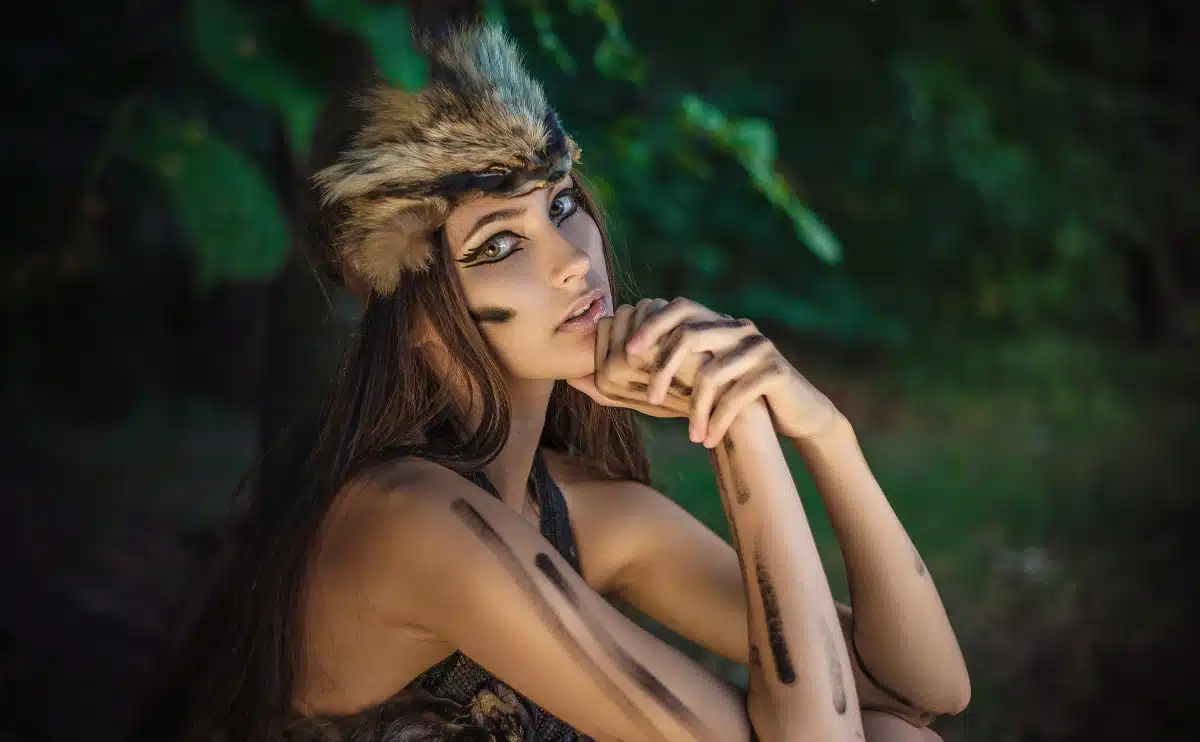
Untamed Poems About Lions
Embark on a captivating journey through a curated selection of the most majestic poems about lions, thoughtfully categorized for your immersive exploration.
Our collection unveils works that capture the fierce power and regal presence of these magnificent creatures, as well as their symbolism in mythology and literature.
With our handpicked assortment, you can now delve into a realm where words roar and resonate, inviting you to witness the untamed beauty and awe-inspiring grace of lions, all gathered in one place for your convenience.
Take a moment to immerse yourself in the captivating verses that celebrate the spirit of lions, evoking a sense of strength, courage, and the untamed wildness that resides within us all.
Let’s jump right in!
My #1 Favorite Poem About Lions
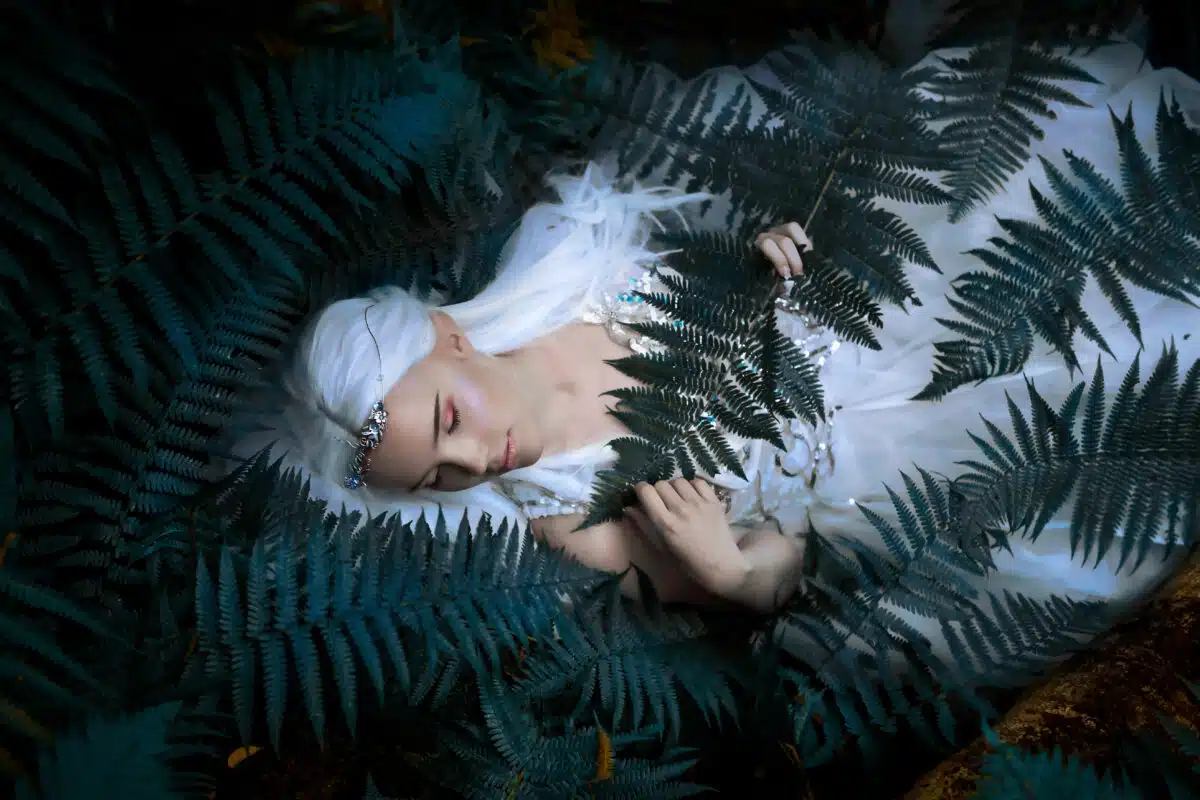
“The Lion’s Skeleton” by Charles Tennyson Turner
How long, O lion, hast thou fleshless lain?
What rapt thy fierce and thirsty eyes away?
First came the vulture: worms, heat, wind, and rain
Ensued, and ardors of the tropic day.
I know not—if they spar’d it thee—how long
The canker sate within thy monstrous mane,
Till it fell piecemeal, and bestrew’d the plain,
Or, shredded by the storming sands, was flung
Again to earth; but now thine ample front,
Whereon the great frowns gather’d, is laid bare;
The thunders of thy throat, which erst were wont
To scare the desert, are no longer there;
Thy claws remain, but worms, wind, rain, and heat
Have sifted out the substance of thy feet.
Short Poems About Lions
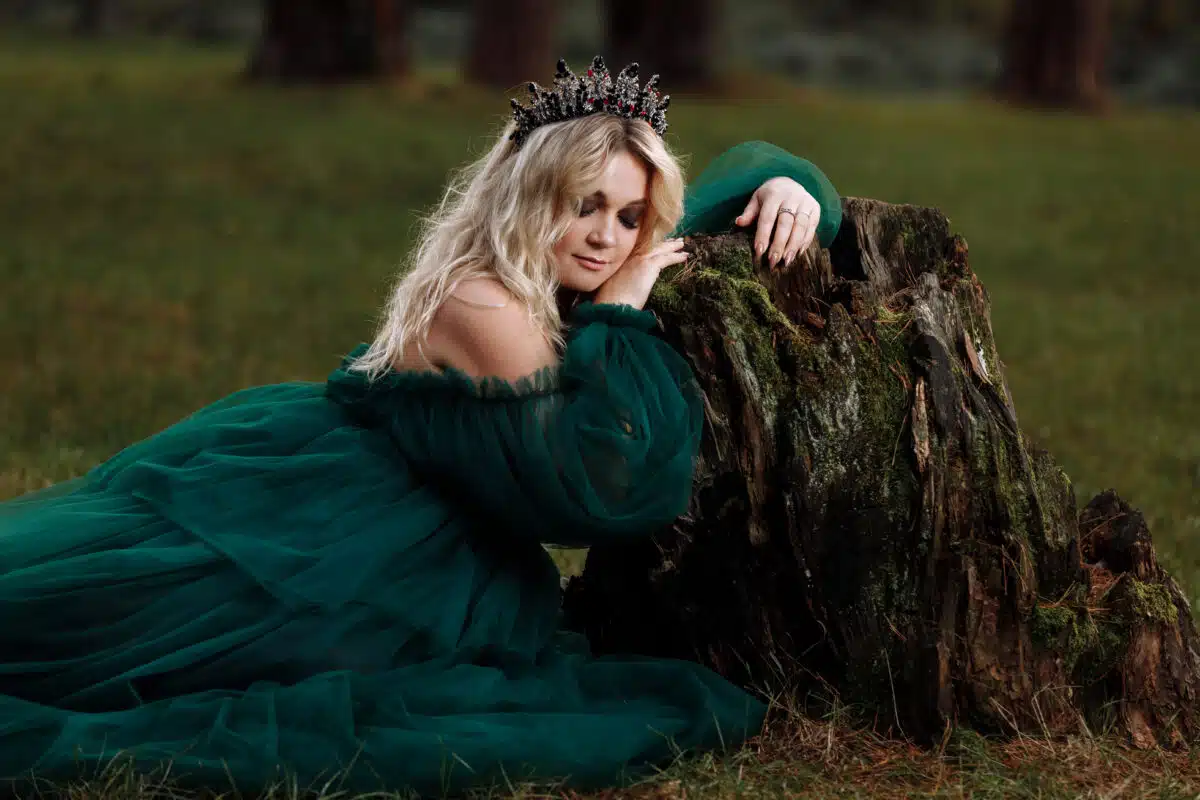
“The Lion” by Hilaire Belloc
The Lion, the Lion, he dwells in the Waste,
He has a big head and a very small waist;
But his shoulders are stark, and his jaws they are grim,
And a good little child will not play with him.
“The Fox & the Lion” by Walter Crane
The first time the Fox had a sight
Of the Lion, he ‘most died of fright;
When he next met his eye,
Fox felt just a bit shy;
But the next–quite at ease, & polite.
“The Lion Grown Old.” by Jean de La Fontaine
A lion, mourning, in his age, the wane
Of might once dreaded through his wild domain,
Was mock’d, at last, upon his throne,
By subjects of his own,
Strong through his weakness grown.
The horse his head saluted with a kick;
The wolf snapp’d at his royal hide;
The ox, too, gored him in the side;
The unhappy lion, sad and sick,
Could hardly growl, he was so weak.
In uncomplaining, stoic pride,
He waited for the hour of fate,
Until the ass approach’d his gate;
Whereat, ‘This is too much,’ he saith;
‘I willingly would yield my breath;
But, ah! thy kick is double death!’
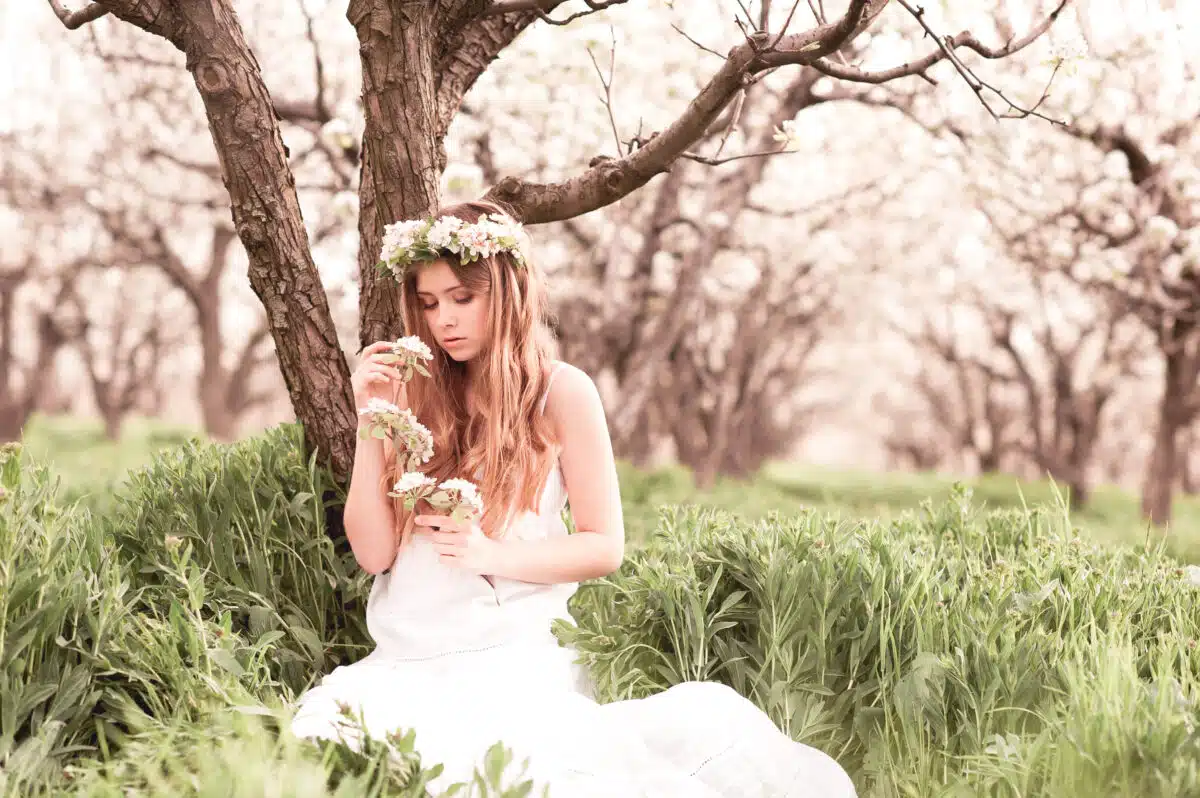
“The Lion” by Oliver Herford
The Lion does not move at all,
Winter or Summer, Spring or Fall,
He does not even stretch or yawn,
But lies in silence on the lawn.
He must be lazy it is plain,
For there is moss upon his mane,
And what is more, a pair of Daws
Have built a nest between his paws
Oh, Lazy Lion, big and brown,
This is no time for lying down!
The Sun is shining, can’t you see?
Oh, please wake up and play with me.
“The Lion In Love” by Walter Crane
Though the Lion in love let them draw
All his teeth, and pare down every claw,
He’d no bride for his pains,
For they beat out his brains
Ere he set on his maiden a paw.
“Anticipation” by Oliver Herford
When I grow up I mean to be
A Lion large and fierce to see.
I’ll mew so loud that Cook in fright
Will give me all the cream in sight.
And anyone who dares to say
“Poor Puss” to me will rue the day.
Then having swallowed him I’ll creep
Into the Guest Room Bed to sleep.
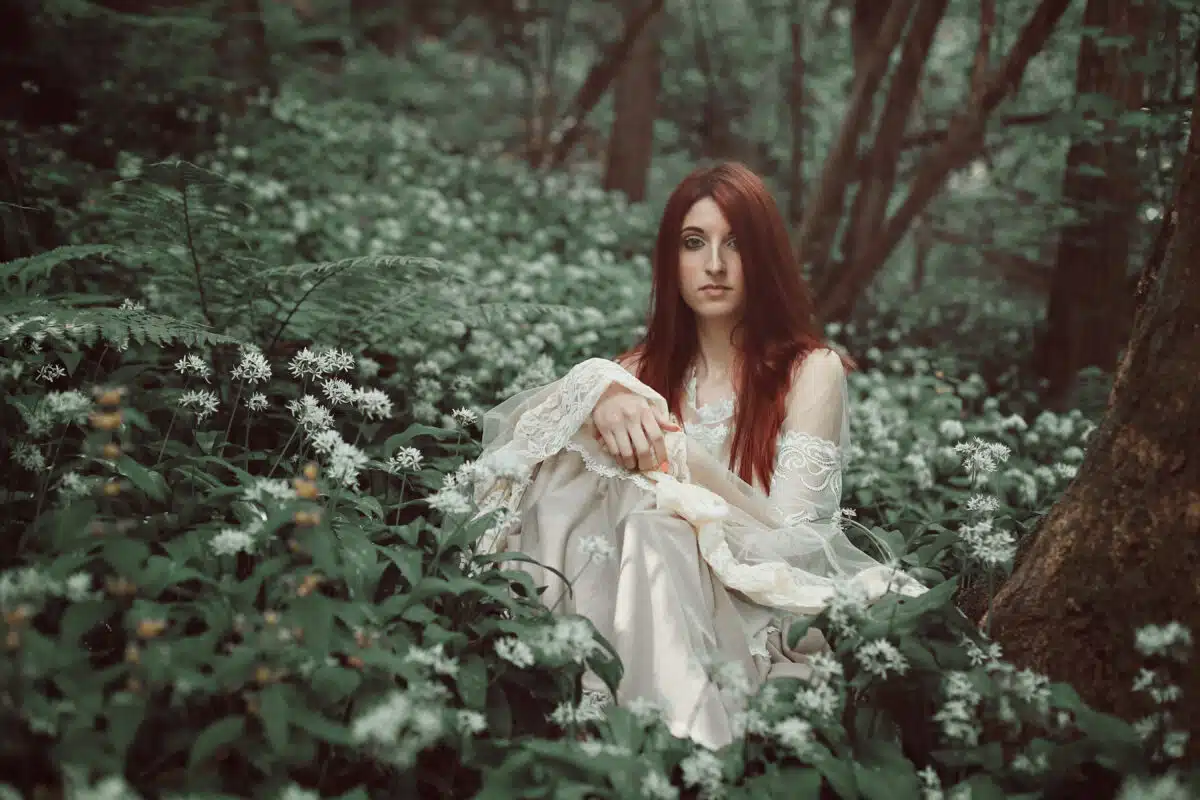
“The Lion” by William Morris
The Beasts that be
In wood and waste,
Now sit and see,
Nor ride nor haste.
“The Frightened Lion” by Walter Crane
A Bull Frog, according to rule,
Sat a-croak in his usual pool:
And he laughed in his heart
As a Lion did start
In a fright from the brink like a fool.
“The Ass & the Sick Lion” by Walter Crane
Crafty Lion,–perhaps with the gout,
Kept his cave; where, to solve any doubt,
Many visitors go:
But the Ass, he said “No!
They go in, but I’ve seen none come out.”
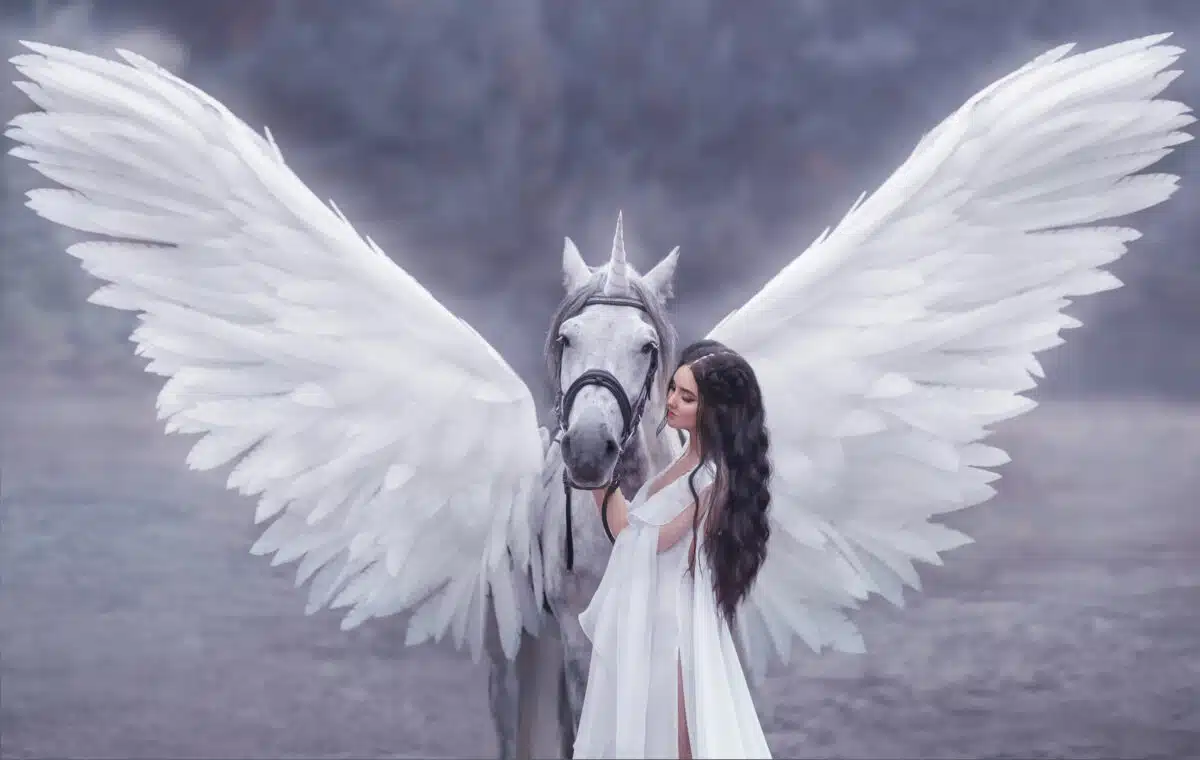
“The Lion and the Unicorn” by Leonard Leslie Brooke
The Lion and the Unicorn
Were fighting for the Crown;
The Lion beat the Unicorn
All round about the town.
Some gave them white bread,
And some gave them brown;
Some gave them plum-cake,
And sent them out of town
“The Cock, the Ass & the Lion” by Walter Crane
The Ass gave a horrible bray,
Cock crowed; Lion scampered away;
Ass judged he was scared
By the bray, and so dared
To pursue; Lion ate him they say.
“Lion” by Edith Brown Kirkwood
Sometimes I am so sorry that my papa is a king,
It’s really most annoying and hurts like everything
To have the little girls and boys all want to run away,
For if I am a Lion prince, I’m a baby, anyway!
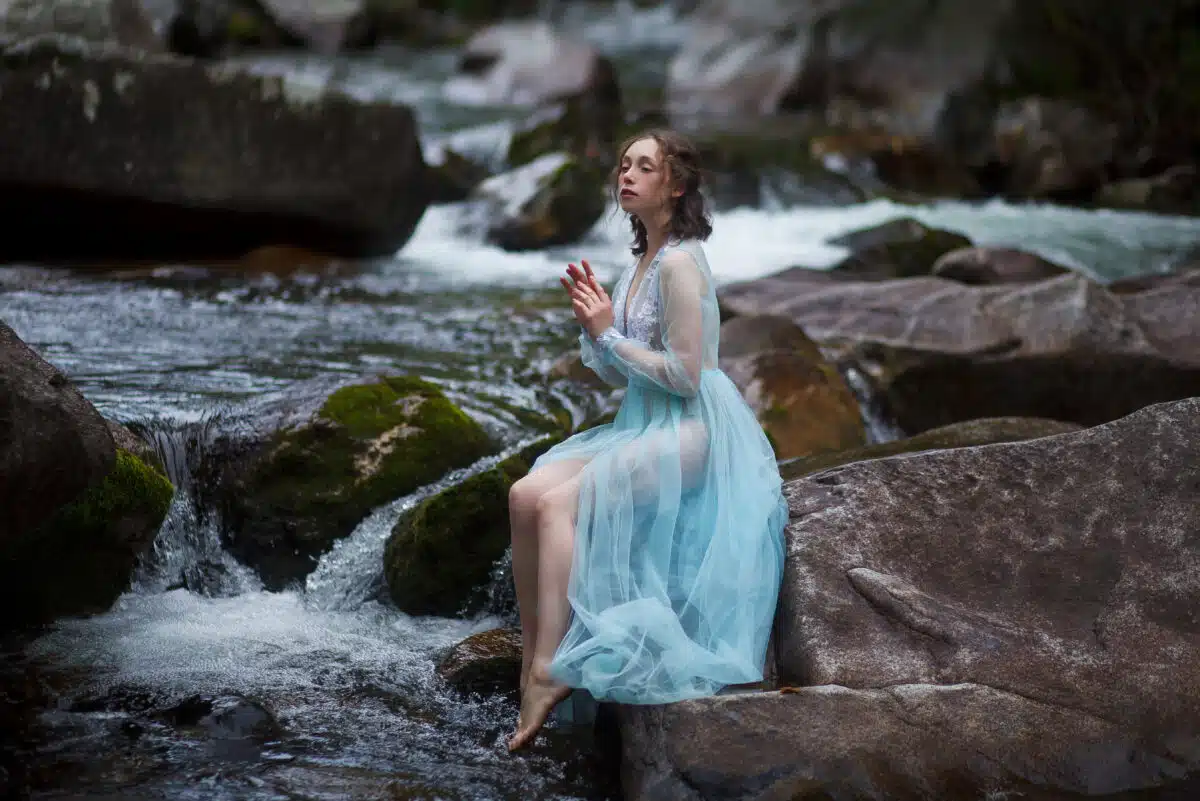
“The Lion and the Lamb” by Elinor Wylie
I saw a Tiger’s golden flank,
I saw what food he ate,
By a desert spring he drank;
The Tiger’s name was Hate.
Then I saw a placid Lamb
Lying fast asleep;
Like a river from its dam
Flashed the Tiger’s leap.
I saw a Lion tawny-red,
Terrible and brave;
The Tiger’s leap overhead
Broke like a wave.
In sand below or sun above
He faded like a flame.
The Lamb said, “I am Love”;
“Lion, tell your name.”
The Lion’s voice thundering
Shook his vaulted breast,
“I am Love. By this spring,
Brother, let us rest.”
“The Mouse & the Lion” by Walter Crane
A poor thing the Mouse was, and yet,
When the Lion got caught in a net,
All his strength was no use
‘Twas the poor little Mouse
Who nibbled him out of the net.
“The Lion” by David Starr Jordan
The Lion looks like
Santa Claus,
I think that this should
give him paws.
When he on Lionizing’s
bent,
He always looks benevolent.
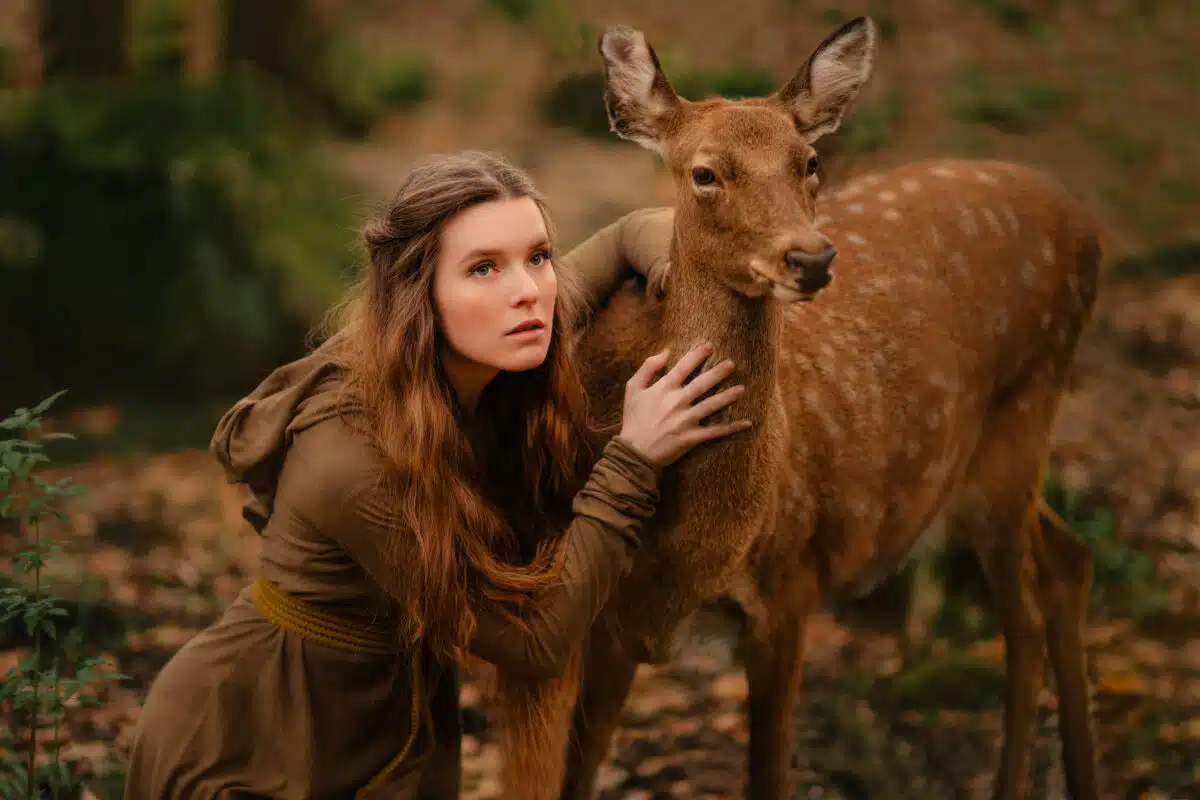
“The Deer & the Lion” by Walter Crane
From the hounds the swift Deer sped away,
To his cave, where in past times he lay
Well concealed; unaware
Of a Lion couched there,
For a spring that soon made him his prey
Poems About Lions That Rhyme
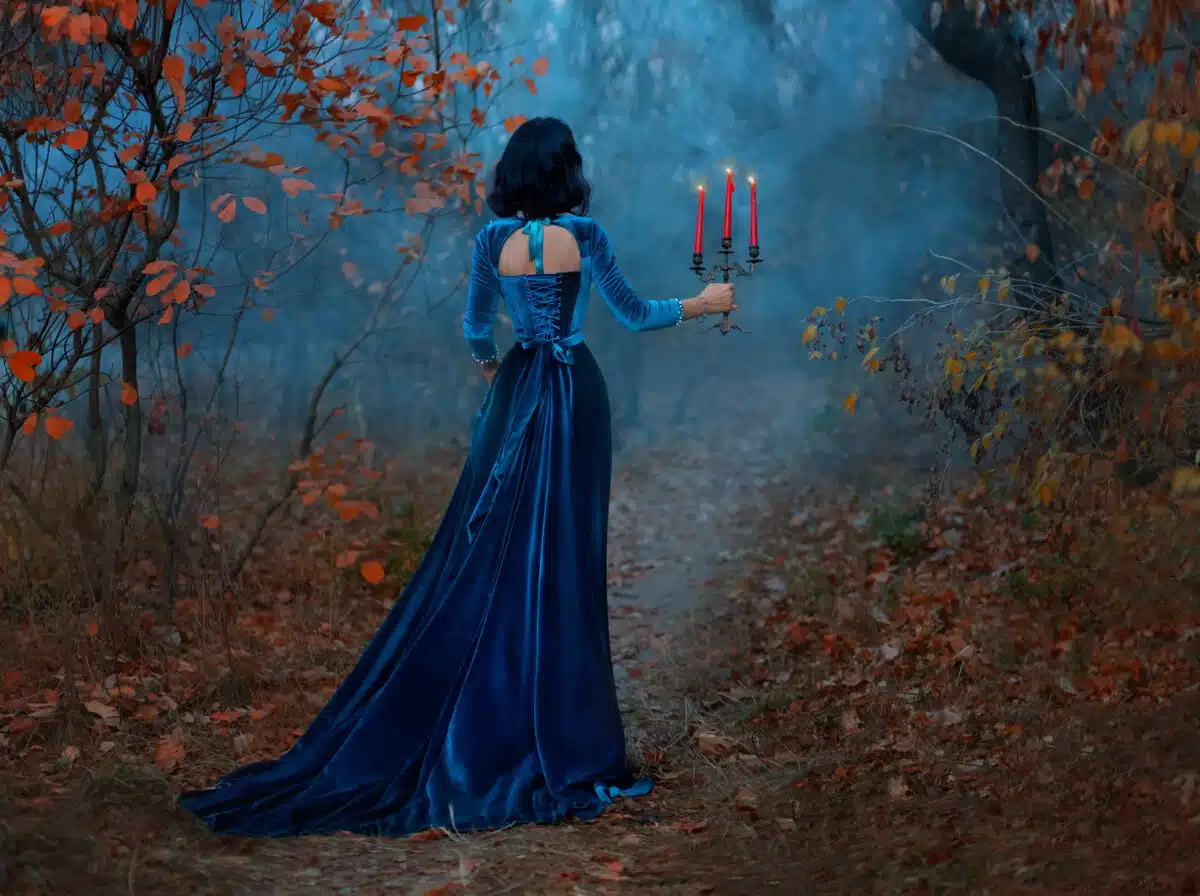
“On the Trail of the Lion” by Louis Selmer
Somewhere to the Moonward, or Sunward, so to speak;
A span or two to Eastward, then Southward by a streak,
Was heard to blare of tomtom a shameless epic wail,
At fancy of some Lion who had whisked his blooming tail
Plumb thro’ a nest of hornets, nor never dreamt the hive
Had such a trick to mind him how were that tail alive.
And it seems the skies were blathering while every wind-god swore
The Pities would have curdled to hear the Beastie roar.
All offered salve and comfort, said never done was Wrong,
But some requiting Themis should venge it to her song;
Should smite the pesting dwarfies and heal the giant’s bruise,
See paw and toothie peak not for lack of worthy use.
And, O, the strain fell whopping to thunder—drip of sooth,
A lamb-like lyric slopping its pace with bleary ruth;
Nay, in sober last, an epic, outworking thro’ the fact,
Through blaze of hostile numbers, its own and bitter act.
And it shook us to the Westward—a touch of kin and near—
We banged our shoppy hatches: we had a right to hear.
“The Lion Going to War.” by Jean de La Fontaine
The lion had an enterprise in hand;
Held a war-council, sent his provost-marshal,
And gave the animals a call impartial –
Each, in his way, to serve his high command.
The elephant should carry on his back
The tools of war, the mighty public pack,
And fight in elephantine way and form;
The bear should hold himself prepared to storm;
The fox all secret stratagems should fix;
The monkey should amuse the foe by tricks.
‘Dismiss,’ said one, ‘the blockhead asses,
And hares, too cowardly and fleet.’
‘No,’ said the king; ‘I use all classes;
Without their aid my force were incomplete.
The ass shall be our trumpeter, to scare
Our enemy. And then the nimble hare
Our royal bulletins shall homeward bear.’
A monarch provident and wise
Will hold his subjects all of consequence,
And know in each what talent lies.
There’s nothing useless to a man of sense.
“The Lion and the Rat.” by Jean de La Fontaine
To show to all your kindness, it behoves:
There’s none so small but you his aid may need.
I quote two fables for this weighty creed,
Which either of them fully proves.
From underneath the sward
A rat, quite off his guard,
Popp’d out between a lion’s paws.
The beast of royal bearing
Show’d what a lion was
The creature’s life by sparing –
A kindness well repaid;
For, little as you would have thought
His majesty would ever need his aid,
It proved full soon
A precious boon.
Forth issuing from his forest glen,
T’ explore the haunts of men,
In lion net his majesty was caught,
From which his strength and rage
Served not to disengage.
The rat ran up, with grateful glee,
Gnaw’d off a rope, and set him free.
By time and toil we sever
What strength and rage could never
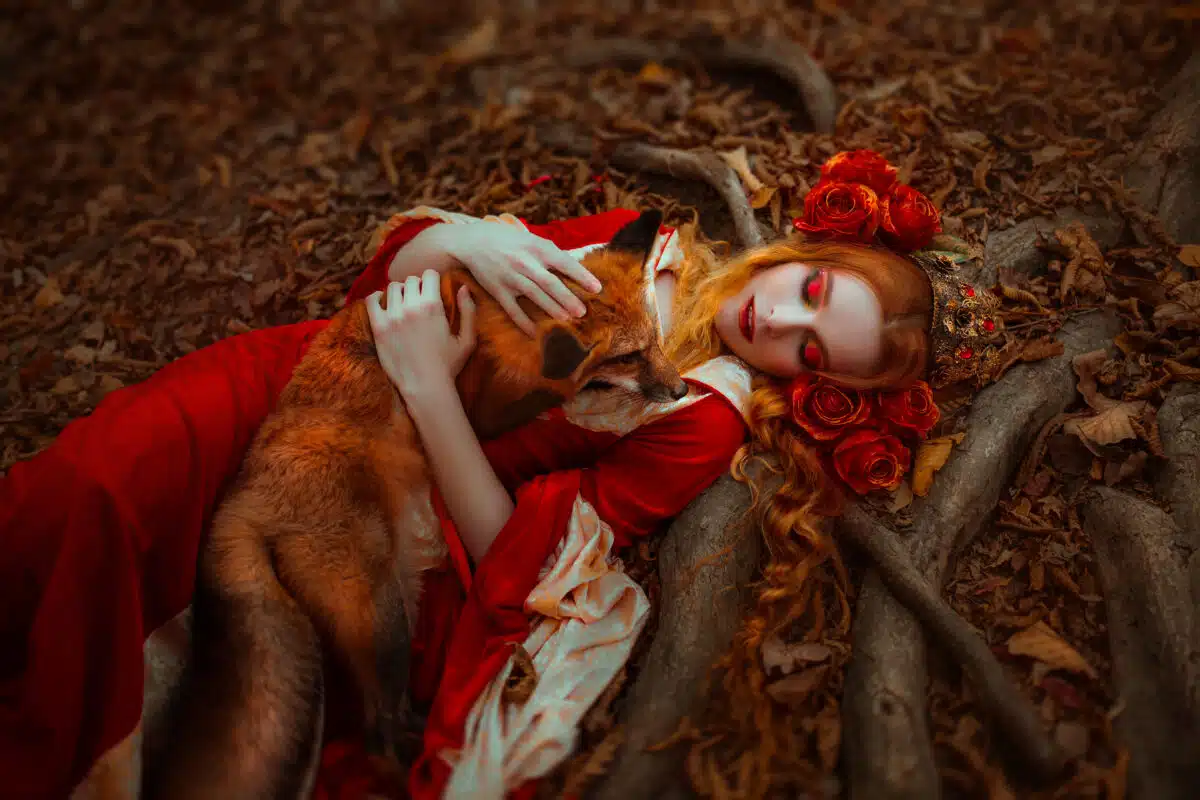
“Lion, Fox, and Gander.” by John Gay
A lion, sick of pomp and state,
Resolved his cares to delegate.
Reynard was viceroy named – the crowd
Of courtiers to the regent bowed;
Wolves, bears, and tigers stoop and bend,
And strive who most could condescend;
Whilst he, with wisdom in his face,
Assumed the regal grace and pace.
Whilst flattery hovered him around,
And the pleased ear in thraldom bound,
A fox, well versed in adulation,
Rose to pronounce the due oration:
“Vast talents, trained in virtue’s school,
With clemency, from passion cool –
And uncorrupted – such a hand
Will shed abundance o’er the land.
The brain shall prompt the wiser part,
Mercy and justice rule the heart;
All blessings must attend the nation
Under such bright administration.”
A gander heard and understood,
And summoned round his gosling brood:
“Whene’er you hear a rogue commended,
Be sure some mischief is intended;
A fox now spoke in commendation –
Foxes no doubt will rise in station;
If they hold places, it is plain
The geese will feel a tyrant reign.
‘Tis a sad prospect for our race
When every petty clerk in place
Will follow fashion, and ne’er cease
On holidays to feed on geese.”
“The Lion and the Orange Grove” by James Parkerson
Three Jackalls were a prawling sent
It is supposed with ill intent,
At least to make a prey:
On any thing they saw was good;
So dashing furious in a wood,
They seiz’d without delay,
An Orange Tree well hung with fruit,
It apt the Lion’s taste to suit,
By Jackalls forced away.
The owner of the tree declares,
He’ll strip the Lion of his ears,
Or make him sharply pay.
So to it furiously they went,
He’ll make the Lion soon repent,
For seizing others store.
He crav’d for mercy night and day;
The Owner of the fruit won’t stay!
But will him sadly gore.
Sharp pains ran down his aching side,
The Lion on his knees loud cried,
I will do so no more.
The orange man declar’d with glee,
Your minion sha’nt have liberty
To enter here no more.
Ne’er shall you have the power to take
My fruit away for hunger sake,
But I will have a change;
My tale of woe none can deny,
You know your master dwells on high,
He soon will stop your range.
He wears a fur more grand to view,
And is more merciful than you,
Your arrogance he’ll stop;
He’ll quickly with a little chain,
Your nightly prowlings soon restrain;
And your ambition lop.
He was allowed no more to stray,
With hungry Jackalls night or day;
Where Orange trees are seen.
It serv’d him right to stop his power,
Or he would each succeeding hour,
Pluck Oranges too green.
Besides there is a law that’s known,
We should take nothing but our own,
From either beast or man.
Tho’ power is given to us here,
We should the little lambs revere,
And serve them if we can.
I hope this will a warning prove,
To other Lions in the grove,
Who may hereafter stray:
By power or order to a place,
And not incur the like disgrace,
We witness’d t’other day.
The low bred minions seek to bind,
The smaller ones of gentler kind,
But in this happy Isle;
A savage beast is laid aside,
For every Reptile to deride,
Or hourly to revile.
“King Diderick and the Lion’s Fight With the Dragon” by George Borrow
From Bern rode forth King Diderik,
A stately warrior form;
Engaged in fray he found in the way
A lion and laidly worm.
They fought for a day, they fought for two,
But ere the third was flown,
The worm outfought the beast, and brought
To earth the lion down.
Then cried the lion in his need
When he the warrior saw:
“O aid me quick, King Diderik,
To ’scape the Dragon’s claw.
“O aid me quick, King Diderik,
For the mighty God thou fearest;
A lion save for the lion brave,
Which on thy shield thou bearest.
“Come to my rescue, thou noble King,
Help, help me for thy name;
Upon thy targe I stand at large,
Glittering like a flame.”
Long, long stood he, King Diderik,
Deep musing thereupon;
At length he cried: “Whate’er betide
I’ll help thee, noble one.”
It was Sir King Diderik,
His good sword bare he made:
With courage fraught, the worm he fought,
Till blood tinged all the blade.
The gallant lord would not delay
So fast his blows he dealt;
He hacked and gored until his sword
Was sundered at the hilt.
The Lindworm took him upon her back,
The horse beneath her tongue;
To her mountain den she hurried then
To her eleven young.
The horse she cast before her young,
The man in a nook she throws:
“Assuage your greed upon the steed,
But I will to repose.
“I pray ye feed upon the steed,
At present no more I can;
When I upleap, refreshed, from sleep,
We’ll feast upon the man.”
It was Sir King Diderik,
In the hill he searched around;
Then, helped by the Lord, the famous sword
Called Adelring he found.
Aye there he found so sharp a sword,
And a knife with a golden heft:
“King Sigfred be God’s grace with thee,
For here thy life was reft!
“I’ve been with thee in many a fight,
In many an inroad too,
But that thy doom had been in this tomb
I never, never knew.
It was Sir King Diderik,
Would prove the faulchion’s might;
He hewed upon the flinty stone
’Till all around was light.
It was the youngest Lindworm saw
The sparks the hill illume:
“Who dares awake the fiery snake
In her own sleeping room?”
The Lindworm gnashed its teeth with rage,
Its grinning fangs it show’d:
“Who dares awake the mother snake
Within her own abode?
Then spake the other little ones,
From the dark nooks of the hill:
“If from her sleep the old one leap,
’Twill fare with thee but ill.”
Then answered Sir King Diderik,
His eyes with fury gleam:
“I will awake your mother snake
With chilly, chilly dream.
“Your mother she King Sigfred slew,
A man of noble line;
I’ll on ye all avenge his fall
With this good hand of mine.”
And then awaked the Lindworm old,
And on her fell such fear:
“Who thus with riot disturbs my quiet?
What noise is this I hear?”
Then said King Diderik: “’Tis I,
And this have I to say:
O’er hill and dale, ’neath thy crooked tail,
Thou brought’st me yesterday.”
“O hew me not, King Diderik,
I’ll give thee all my hoard;
’Twere best that we good friends should be,
So cast away thy sword.”
“I pay no trust to thy false device,
Befool me thou wouldst fain;
Full many hast thou destroyed ere now,
Thou never shalt again.”
“Hear me, Sir King Diderik,
Forbear to do me ill,
And thee I’ll guide to thy plighted bride,
She’s hidden in the hill.
“Above by my head, King Diderik,
Is hung the little key;
Below by my feet to the maiden sweet
Descend thou fearlessly.”
“Above by thy head, thou serpent curst,
To begin I now intend;
Below by thy feet, as is full meet,
I soon shall make an end.”
Then first the laidly worm he slew,
And then her young he smote;
But in vain did he try from the mountain to fly,
For tongues of snakes thrust out.
So then with toil in the rocky soil
He dug a trench profound,
That in the flood of serpent blood
And bane he might not be drowned.
Then bann’d the good King Diderik,
On the lion he wroth became:
“Bann’d, bann’d,” said he, “may the lion be,
Confusion be his and shame.”
“With subtle thought the brute has brought
On me this grievous risk;
Which I ne’er had seen had he not been
Graved on my buckler’s disc.”
And when the gallant lion heard
The King bewail his hap:
“Stand fast, good lord,” the lion roared,
“While with my claws I scrap.”
The lion scrapp’d, King Diderik hewed,
Bright sparks the gloom relieved;
Unless the beast had the knight released
He’d soon to death have grieved.
So when he had slain the laidly worm,
And her offspring all had kill’d;
Escaped the knight to the morning light,
With heavy cuirass and shield.
And when he had now come out of the hill
For his gallant courser he sighed;
With reason good he trust him could,
For they had each other tried.
“O there’s no need to bewail the steed,
Which thou, Sir King, hast miss’d;
I am thy friend, my back ascend,
And ride where’er thou list.”
So he rode o’er the deepest dales,
And o’er the verdant meads;
The knight he rode, the lion strode,
Through the dim forest glades.
The lion and King Diderik
Together thenceforth remain;
Each death had braved, and the other saved
From peril sore and pain.
Where’er King Diderik rode in the fields
The lion beside him sped;
When on the ground the knight sat down
In his bosom he laid his head.
Wherefore they call him the lion knight
With fame that name he bore;
Their love so great did ne’er abate
Until their dying hour.

“The Lions” by Edwin Curran
The jungle glistens like a cloud—
Purple-cool, tree-deep, lake-pearled;
Where lions lurk and thrash and crowd,
Like lands that battle for the world.
Behold, one lion leaps for his prey,
Trotting like a saffron mist,
As savage nations in our day
Pounce on some weak antagonist.
Across the jungle-painted grass
His roar breaks through the tropic air;
And he runs like a tawny flame—
Swift yellow stroke of lightning there.
His cry is like the thunder’s sound,
Shaking leaf and bough and bole;
And he is part of Africa—
The yellow monarch in her soul.
Painted birds fly through the trees
And stain the sky with brown on blue,
Hammering with their wings the breeze,
Hitting songs across the dew.
Parrots gaudy as a star
Tap their bells and chatter sound.
Each insect sweeps his dim guitar
Like music hidden in the ground.
The tawny lion goes like a shot—
A daub of gold against the green,
Scenting a wounded bleeding doe
That he is following unseen.
A spangled serpent lights a tree,
A coiling flame around it, curled;
But the old lion goes great and free,
The master of his jungle world
Bravely born and bravely bred,
Proud as a diamond of his fire,
This yellow monarch of the south
Goes like the hosts that swarmed to Tyre.
Hungry to kill, he scents the air,
And roars into beginning night,
His blond mane tossing up its hair,
His eyes two pools of blazing light.
He stops and lips the evening gale,
Reading the wind across the trees;
Giant cat in his tawny mail,
Spelling out the trail-warm breeze.
Then on he darts as though with wings,
To find his prey and drink the blood
And feast upon the harmless things
That God has put into the wood.
A gorilla slouches through the bush;
A leopard’s eyes shoot stars of light;
The deep luxuriant forest hush
Hides serpents beetle-colored, bright.
The crane nods sleeping, spindle-shanked;
Gray monkeys troop and clack and peer;
A jungle stream goes emerald-banked,
Purring like a wild-cat near.
The cinnamon-colored land awakes
Around the lion fold on fold;
Yellowing with fruit, blue with lakes,
Stuck with fireflies burnished gold.
Gray monkeys watch the lion and talk,
Lassoing trees with leather tails;
Some far palms by the seaside walk,
And near-by sing the nightingales.
The moon hangs like a petal of gold
Broken upon the western sky.
The blue dusk deepens fold on fold,
The shattered day lies down to die.
Here in this wild primeval place,
Savage, wooded, poisonous, still,
Far from mankind and human face,
The old lion goes to hunt and kill.
His prey is near, the scent is strong,
He roars out in his ghastly mirth.
There, bleeding like a shattered song,
His wounded doe is run to earth.
But as he leaps to take its throat
A younger lion leaps up and cries;
And there the two lions stand like stone,
The fires of ages in their eyes.
It took the centuries to make
These lions’ sun-colored bodies bright,
These great-teethed felines from the brake,
Tawny, crouching, cruel as night.
Their eyes turn red—these cats of brown
Swift as wind, lithe as air,
Savage-maned and monarch-crowned,
With blazing eyes and yellow hair.
The painted snake makes not a sound;
The frightened birds shake in the tree:
Like two great russet clouds they bound,
These monarchs, for the mastery.
The teak-tree groans, the gum is still,
The coffee-tree nods to the duel;
An elephant calf stares from a hill,
A lizard watches from a pool.
White silver moon, an eye of snow,
Looks from the dusk with beauty hung,
Her pale lids open and aglow
Where starry ladders are far-flung.
The lions’ steel sinews knot in cords;
There is a crash of yellow forms;
The zebu and chimpanzee run;
The jungle with the battle storms.
A roar that rocks the ground is heard,
And monkeys chatter, parrots flee.
The coiled snake and the gaudy bird
Slink from their everlasting tree.
The colors of the painted land
All disappear as quick as light;
The great palms tremble, and the hand
Of God draws over all the night.
The dotted turtles hunt the ground,
Now rocking with the battling pair;
The night birds, startled, make no sound,
The vultures scent the bloody air.
Hyenas wait to eat the dead
And pick the polished bones and wail;
A python crawls with silken tread
On silver plates of sliding mail.
The wild things of the jungle know
A battle of the kings is on;
The zebras cry, the tree-cats yell;
The tall giraffe has swiftly flown;
The spiders hang on polished webs—
Greenish discs of jeweled light;
A frog is croaking in his well,
The fireflies shower through the night.
The two huge cats are at their duel—
Two yellow whirlwinds, hard as stones;
Snapping, biting, wild and cruel,
Tearing flesh and crunching bones.
Jaws upraised and crashing shut,
Lifting, sinking, slashing there;
Paws like razors slitting skin,
Teeth like knives of white that tear.
The painted flowers drip with blood,
The hiding snake is crushed below;
The lizard stamps into the ground;
The trees shake as when whirlwinds blow.
The monkeys swing away and run;
The wildcat looks and leaps away;
The leopard, spotted with the sun,
Slides by into the mist of gray.
The poisonous flies have scented blood,
And elephants have come to peer;
Ant-eaters look into the wood
To see the battle of the year.
The scorpion squirms into the view,
And things unspeakable, to see—
Speared and horned and crusted blue,
The toad and reptile infantry.
The jungle sees the battle rage
Intense, ferocious, swift and fast—
A terrible and an awful sight,
So horrible toward the last
The lions have cowed the very night,
And stunned the shadows and the trees:
A scuffle like the break of worlds,
The shattering of centuries.
But the old lion shows greater skill,
With harder blows and mastery;
His teeth were longer trained to kill,
His strength upholds his majesty.
Yet the young lion is quick and strong—
So wiry lithe he seems to float;
He worries the old lion for long—
Till the old lion leaps at his throat.
They wave in battle, spinning round
Together, snarling, thundering, bright,
Thrashing through the dry dead grass;
Until the day has turned to night,
And left the young lion dead and still—
In ribbons, mangled on the sod,
His broken body cold and chill—
The old lion still his lord and god.
The old master of the forest stands
With one paw on the fallen breast—
The monarch of the jungle lands
Whose victory challenges the best.
A king is dead—long live the king!
He roars, his eyes like coals aglow.
He calls his mate, a lioness there,
To come and feast and eat the doe.
He calls his lady through the night,
And she replies and comes to him,
Where the dead doe lies still and white,
To banquet in the shadows dim:
Like nations, when the war is done,
Who gather at the feasting board
To dine upon the hard-won prey,
Each like a monarch and a lord.
The snake slips back into his tree,
The monkeys chatter now in peace;
And over the blue woods there falls
The age-old night of centuries.
The fireflies hang their lanterns back
To star the dark; the beetles bell;
The lizards creep, and nightbirds sing;
The snail is dancing in his shell.
The yellow floods are still and quiet;
The sky is blue like trembling glass;
Beasts, birds and toads and insects riot
Beneath the stars in jungle grass.
After the battle night alone;
Moon-mist, ghostly poison-flowers;
Trumpeting of beasts that moan
Through creeping crawling crimson hours.
A shaky moon rocks in the night,
A grumbling sea, far palms, the crash
Of monkeys chattering as they fight;
Gray serpents going like a flash;
Slow turtles, swifter bats on wing;
Worms creeping back, and spiders, flies;
Lizards with poisonous following,
And fanged things in their paradise.
Slimy silken bellies squirming,
Offal-scented beasts of prey;
Hungry, lethal toads and reptiles
Who move by night and hide by day:
Tearing flesh of birds that nest,
Rending bones that drip with blood.
So the jackals strike and quest
In the world’s jungle brotherhood.
But must these creepers in their turn
Be conquered in the coming light,
As new hope rises on the world
And the old lions go with the night?
Yet who can tell what signs of death
Await the nations one by one?
Ah, what will happen in earth’s dark night
Before the rising of the sun?
“The Funeral of the Lioness.” by Jean de La Fontaine
The lion’s consort died:
Crowds, gather’d at his side,
Must needs console the prince,
And thus their loyalty evince
By compliments of course;
Which make affliction worse.
Officially he cites
His realm to funeral rites,
At such a time and place;
His marshals of the mace
Would order the affair.
Judge you if all came there.
Meantime, the prince gave way
To sorrow night and day.
With cries of wild lament
His cave he well-nigh rent.
And from his courtiers far and near,
Sounds imitative you might hear.
The court a country seems to me,
Whose people are, no matter what, –
Sad, gay, indifferent, or not, –
As suits the will of majesty;
Or, if unable so to be,
Their task it is to seem it all –
Chameleons, monkeys, great and small.
‘Twould seem one spirit serves a thousand bodies –
A paradise, indeed, for soulless noddies.
But to our tale again:
The stag graced not the funeral train;
Of tears his cheeks bore not a stain;
For how could such a thing have been,
When death avenged him on the queen,
Who, not content with taking one,
Had choked to death his wife and son?
The tears, in truth, refused to run.
A flatterer, who watch’d the while,
Affirm’d that he had seen him smile.
If, as the wise man somewhere saith,
A king’s is like a lion’s wrath,
What should King Lion’s be but death?
The stag, however, could not read;
Hence paid this proverb little heed,
And walk’d, intrepid, to’ards the throne;
When thus the king, in fearful tone:
‘Thou caitiff of the wood!
Presum’st to laugh at such a time?
Joins not thy voice the mournful chime?
We suffer not the blood
Of such a wretch profane
Our sacred claws to stain.
Wolves, let a sacrifice be made,
Avenge your mistress’ awful shade.’
‘Sire,’ did the stag reply,
The time for tears is quite gone by;
For in the flowers, not far from here,
Your worthy consort did appear;
Her form, in spite of my surprise,
I could not fail to recognise.
“My friend,” said she, “beware
Lest funeral pomp about my bier,
When I shall go with gods to share,
Compel thine eye to drop a tear.
With kindred saints I rove
In the Elysian grove,
And taste a sort of bliss
Unknown in worlds like this.
Still, let the royal sorrow flow
Its proper season here below;
‘Tis not unpleasing, I confess.”‘
The king and court scarce hear him out.
Up goes the loud and welcome shout –
‘A miracle! an apotheosis!’
And such at once the fashion is,
So far from dying in a ditch,
The stag retires with presents rich.
Amuse the ear of royalty
With pleasant dreams, and flattery, –
No matter what you may have done,
Nor yet how high its wrath may run, –
The bait is swallow’d – object won.
“The Little Lion Charmer” by Harriet Fleming
Outside the little village of Katrine,
Just where the country ventures into town,
A circus pitched its tents, and on the green
The canvas pyramids were fastened down.
The night was clear. The moon was climbing higher.
The show was over; crowds were coming out,
When, through the surging mass, the cry of “fire!”
Rose from a murmur to a wild, hoarse shout.
“Fire! fire!” The crackling flames ran up the tent,
The shrieks of frightened women filled the air,
The cries of prisoned beasts weird horror lent
To the wild scene of uproar and despair.
A lion’s roar high over all the cries!
There is a crash—out into the night
The tawny creature leaps with glowing eyes,
Then stands defiant in the fierce red light.
“The lion’s loose! The lion! Fly for your lives!”
But deathlike silence falls upon them all,
So paralyzed with fear that no one strives
To make escape, to move, to call!
“A weapon! Shoot him!” comes from far outside;
The shout wakes men again to conscious life;
But as the aim is taken, the ranks divide
To make a passage for the keeper’s wife.
Alone she came, a woman tall and fair,
And hurried on, and near the lion stood;
“Oh, do not fire!” she cried; “let no one dare
To shoot my lion—he is tame and good.
“My son? my son?” she called; and to her ran
A little child, that scarce had seen nine years.
“Play! play!” she said. Quickly the boy began.
His little flute was heard by awe-struck ears.
“Fetch me a cage,” she cried. The men obeyed.
“Now go, my son, and bring the lion here.”
Slowly the child advanced, and piped, and played,
While men and women held their breaths in fear.
Sweetly he played, as though no horrid fate
Could ever harm his sunny little head.
He never paused, nor seemed to hesitate,
But went to do the thing his mother said.
The lion hearkened to the sweet clear sound;
The anger vanished from his threatening eyes;
All motionless he crouched upon the ground
And listened to the silver melodies.
The boy thus reached his side. The beast stirred not.
The child then backward walked, and played again,
Till, moving softly, slowly from the spot,
The lion followed the familiar strain.
The cage is waiting—wide its opened door—
And toward it, cautiously, the child retreats.
But see! The lion, restless grown once more,
Is lashing with his tail in angry beats.
The boy, advancing, plays again the lay.
Again the beast, remembering the refrain,
Follows him on, until in this dread way
The cage is reached, and in it go the twain.
At once the boy springs out, the door makes fast,
Then leaps with joy to reach his mother’s side;
Her praise alone, of all that crowd so vast,
Has power to thrill his little heart with pride.
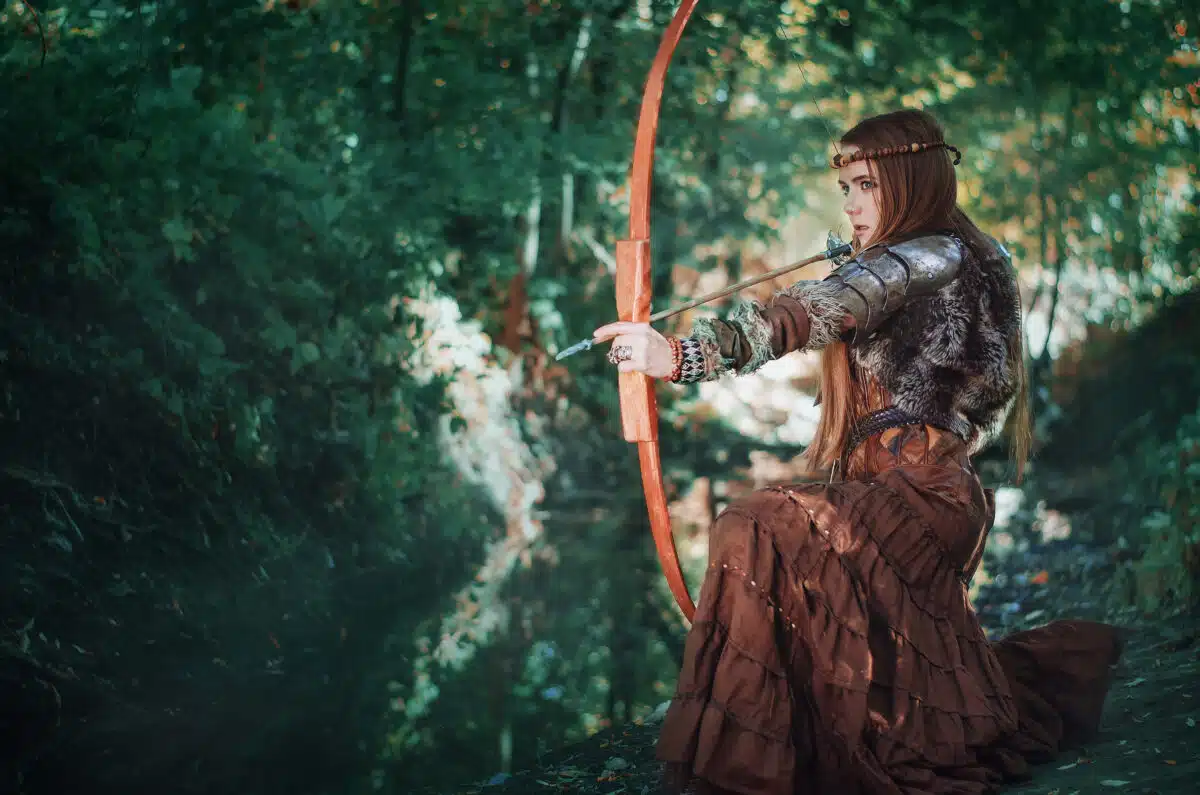
“The Hunters” by Ruth Temple Lindsay
The Lion, he prowleth far and near,
Nor swerves for pain or rue;
He heedeth nought of sloth nor fear,
He prowleth–prowleth through
The silent glade and the weary street,
In the empty dark and the full noon heat;
And a little Lamb with aching Feet–
He prowleth too.
The Lion croucheth alert, apart–
With patience doth he woo;
He waiteth long by the shuttered heart,
And the Lamb–He waiteth too.
Up the lurid passes of dreams that kill,
Through the twisting maze of the great Untrue,
The Lion followeth the fainting will–
And the Lamb–He followeth too.
From the thickets dim of the hidden way
Where the debts of Hell accrue,
The Lion leapeth upon his prey:
But the Lamb–He leapeth too.
Ah! loose the leash of the sins that damn,
Mark Devil and God as goals,
In the panting love of a famished Lamb,
Gone mad with the need of souls.
The Lion, he strayeth near and far;
What heights hath he left untrod?
He crawleth nigh to the purest star,
On the trail of the saints of God.
And throughout the darkness of things unclean,
In the depths where the sin-ghouls brood,
There prowleth ever with yearning mien–
A Lamb as white as Blood!
“The Lion-hunt” by Thomas Pringle
Mount! mount! for the hunting with musket and spear:
Call our friends to the field, for the lion is near:
Call Arend and Ekhard and Groepe to the spoor;
Call Muller and Coetzer and Lucas Van Vuur.
Ride up Skirly-Cleugh, and blow loudly the bugle:
Call Slinger and Allie and Dikkop and Dugal;
And Gert, with the elephant-gun on his shoulder;
In a perilous pinch none is better or bolder.
In the gorge of the glen lie the bones of my steed,
And the hoofs of a heifer of fatherland’s breed;
But mount, my brave friends! if our rifles prove true,
We ’ll soon make the spoiler his ravages rue.
Ho! the Hottentot boys have discovered his track,—
To his den in the desert we ’ll follow him back;
But tighten your girths, and look well to your flints,
For heavy and fresh are the villain’s foot-prints.
Through the rough rocky kloof, through the gray shaggy glen,
By the wild-olive brake where the wolf has his den,
By mountain and forest, by fountain and vlei,
We have tracked him at length to the coverts of Kei.
Mark that black bushy mound where the bloodhounds are howling;
Hark! that hoarse sullen sound like the deep thunder growling;
’T is his lair,—’t is his voice!—from your saddles alight,
For the bold skelm-beast is preparing for fight.
Leave the horses behind, and be still every man;
Let the Mullers and Rennie advance in the van;
Keep fast in a clump;—by the yell of yon hound,
The savage, I guess, will be out with a bound.
He comes!—the tall jungle before him loud crashing,
His mane bristled fiercely, his fiery eyes flashing;
With a roar of disdain he leaps forth in his wrath,
To challenge the foe that dare ’leaguer his path.
He crouches—ay! now we ’ll have mischief, I dread;
Quick! level your rifles, and aim at his head;
Thrust forward the spears, and unsheath every knife,—
St. George! he ’s upon us!—Now fire, lads, for life!
He ’s wounded!—but yet he ’ll draw blood ere he falls:
Ha! under his paw see Bezuidenhout sprawls,—
Now Diederik! Christian! right in the brain
Plant each man his bullet:—hurra! he is slain!
Bezuidenhout,—up, man! ’t is only a scratch
(You were always a scamp, and have met with your match,)—
What a glorious lion!—what sinews, what claws!
And seven feet ten from the rump to the jaws.
Come, off with his hide. Why, his head ’s like a bull’s
(To the wise folks we ’ll send it who lecture on skulls):
He has shown a good pluck, too,—and, after we dine,
We ’ll drink to his dirge, boys, a flask of good wine.
“The Lioness and the Bear.” by Jean de La Fontaine
The lioness had lost her young;
A hunter stole it from the vale;
The forests and the mountains rung
Responsive to her hideous wail.
Nor night, nor charms of sweet repose,
Could still the loud lament that rose
From that grim forest queen.
No animal, as you might think,
With such a noise could sleep a wink.
A bear presumed to intervene.
‘One word, sweet friend,’ quoth she,
‘And that is all, from me.
The young that through your teeth have pass’d,
In file unbroken by a fast,
Had they nor dam nor sire?’
‘They had them both.’ ‘Then I desire,
Since all their deaths caused no such grievous riot,
While mothers died of grief beneath your fiat,
To know why you yourself cannot be quiet?’
‘I quiet! – I! – a wretch bereaved!
My only son! – such anguish be relieved!
No, never! All for me below
Is but a life of tears and woe!’ –
‘But say, why doom yourself to sorrow so?’ –
‘Alas! ’tis Destiny that is my foe.’
Such language, since the mortal fall,
Has fallen from the lips of all.
Ye human wretches, give your heed;
For your complaints there’s little need.
Let him who thinks his own the hardest case,
Some widowed, childless Hecuba behold,
Herself to toil and shame of slavery sold,
And he will own the wealth of heavenly grace.
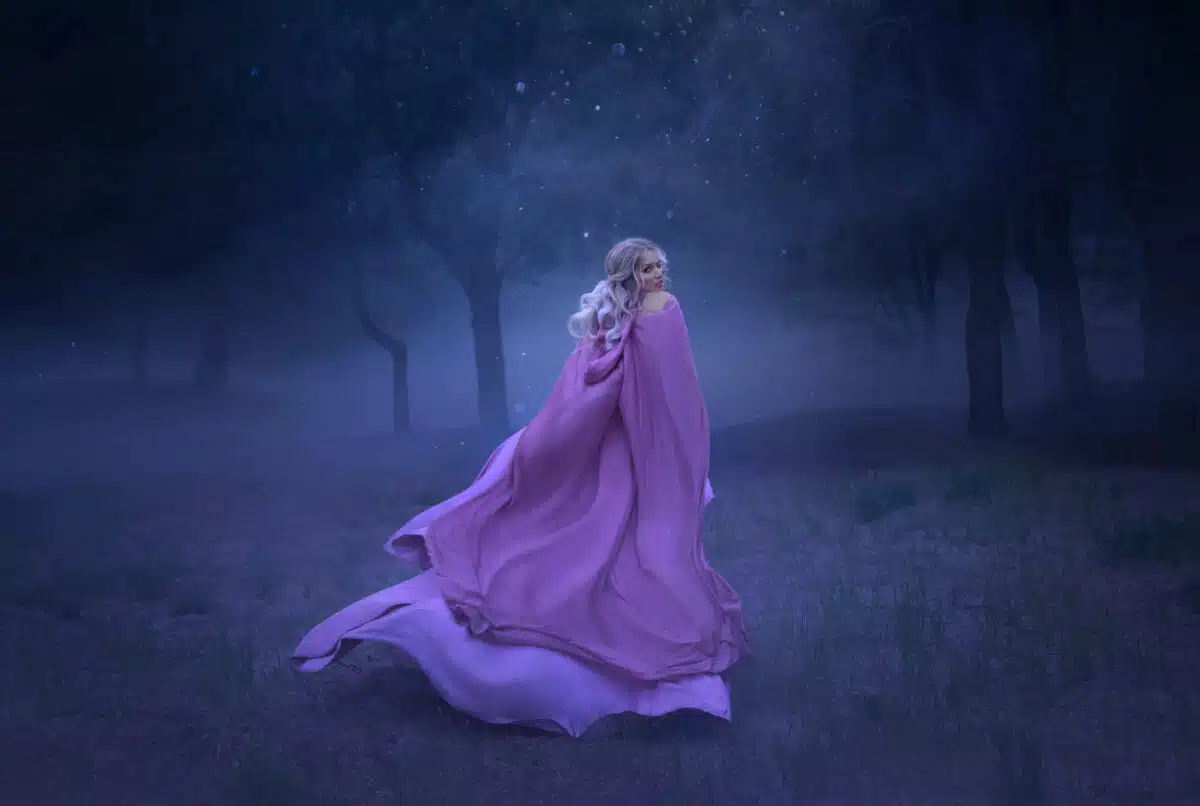
“Lion and Cub.” by John Gay
All men are fond of rule and place,
Though granted by the mean and base;
Yet all superior merit fly,
Nor will endure an equal nigh.
They o’er some ale-house club preside
With smoke and joke and paltry pride.
Nay, e’en with blockheads pass the night;
If such can read, to such I write.
A lion cub of sordid mind
Avoided all the lion-kind,
And, greedy of applause, sought feasts
With asses and ignoble beasts;
There, as their president appears,
An ass in every point, but ears.
If he would perpetrate a joke,
They brayed applause before he spoke;
And when he spoke, with shout they praised,
And said he beautifully brayed
Elate with adulation, then
He sought his father’s royal den,
And brayed a bray. The lion started,
The noble heart within him smarted.
“You lion cub,” he said, “your bray
Proclaims where you pass night and day, –
‘Midst coxcombs who, with shameless face,
Blush not proclaiming their disgrace.”
“Father, the club deems very fine,
All that conforms with asinine.”
“My son, what stupid asses prize
Lions and nobler brutes despise.”
“Una and the Lion (The Faërie Queene Book I Canto III)” by Edmund Spenser
One day, nigh wearie of the yrkesome way,
From her unhastie beast she did alight;
And on the grasse her dainty limbs did lay
In secrete shadow, far from all mens sight;
From her fayre head her fillet she undight,
And layd her stole aside. Her angels face,
As the great eye of heaven, shyned bright,
And made a sunshine in the shady place;
Did never mortall eye behold such heavenly grace.
It fortunèd, out of the thickest wood
A ramping lyon rushèd suddeinly,
Hunting full greedy after salvage blood:
Soone as the royall virgin he did spy,
With gaping mouth at her ran greedily,
To have attonce devoured her tender corse;
But to the pray whenas he drew more ny,
His bloody rage aswagèd with remorse
And, with the sight amazd, forgat his furious forse.
Instead thereof, he kist her wearie feet,
And lickt her lilly hands with fawning tong
As he her wrongèd innocence did weet.
O how can beautie maister the most strong,
And simple truth subdue avenging wrong!
Whose yielded pryde and proud submission,
Still dreading death, when she had markèd long,
Her hart gan melt in great compassion;
And drizling teares did shed for pure affection.
“The lyon, lord of everie beast in field,”
Quoth she, “his princely puissance doth abate,
And mightie proud to humble weake does yield,
Forgetfull of the hungry rage, which late
Him prickt, in pittie of my sad estate:—
But he, my lyon, and my noble lord,
How does he find in cruell hart to hate
Her, that him lovd, and ever most adord
As the god of my life? why hath he me abhord?”
Redounding tears did choke th’ end of her plaint,
Which softly ecchoed from the neighbour wood;
And, sad to see her sorrowfull constraint,
The kingly beast upon her gazing stood;
With pittie calmd, downe fell his angry mood.
At last, in close hart shutting up her payne,
Arose the virgin borne of heavenly brood,
And to her snowy palfrey got agayne,
To seek her strayèd champion if she might attayne.
The lyon would not leave her desolate,
But with her went along, as a strong gard
Of her chast person, and a faythfull mate
Of her sad troubles and misfortunes hard:
Still, when she slept, he kept both watch and ward;
And, when she wakt, he wayted diligent,
With humble service to her will prepard;
From her fayre eyes he took commandment,
And ever by her lookes conceivèd her intent.
Poems About the Lion King

“The Lion’s Court.” by Jean de La Fontaine
His lion majesty would know, one day,
What bestial tribes were subject to his sway.
He therefore gave his vassals all,
By deputies a call,
Despatching everywhere
A written circular,
Which bore his seal, and did import
His majesty would hold his court
A month most splendidly; –
A feast would open his levee,
Which done, Sir Jocko’s sleight
Would give the court delight.
By such sublime magnificence
The king would show his power immense.
Now were they gather’d all
Within the royal hall. –
And such a hall! The charnel scent
Would make the strongest nerves relent.
The bear put up his paw to close
The double access of his nose.
The act had better been omitted;
His throne at once the monarch quitted,
And sent to Pluto’s court the bear,
To show his delicacy there.
The ape approved the cruel deed,
A thorough flatterer by breed.
He praised the prince’s wrath and claws,
He praised the odour and its cause.
Judged by the fragrance of that cave,
The amber of the Baltic wave,
The rose, the pink, the hawthorn bank,
Might with the vulgar garlic rank.
The mark his flattery overshot,
And made him share poor Bruin’s lot;
This lion playing in his way,
The part of Don Caligula.
The fox approach’d. ‘Now,’ said the king,
‘Apply your nostrils to this thing,
And let me hear, without disguise,
The judgment of a beast so wise.’
The fox replied, ‘Your Majesty will please
Excuse’ – and here he took good care to sneeze; –
‘Afflicted with a dreadful cold,
Your majesty need not be told:
My sense of smell is mostly gone.’
From danger thus withdrawn,
He teaches us the while,
That one, to gain the smile
Of kings, must hold the middle place
‘Twixt blunt rebuke and fulsome praise;
And sometimes use with easy grace,
The language of the Norman race.
“The Lion and the Ass Hunting.” by Jean de La Fontaine
The king of animals, with royal grace,
Would celebrate his birthday in the chase.
‘Twas not with bow and arrows,
To slay some wretched sparrows;
The lion hunts the wild boar of the wood,
The antlered deer and stags, the fat and good.
This time, the king, t’ insure success,
Took for his aide-de-camp an ass,
A creature of stentorian voice,
That felt much honour’d by the choice.
The lion hid him in a proper station,
And order’d him to bray, for his vocation,
Assured that his tempestuous cry
The boldest beasts would terrify,
And cause them from their lairs to fly.
And, sooth, the horrid noise the creature made
Did strike the tenants of the wood with dread;
And, as they headlong fled,
All fell within the lion’s ambuscade.
‘Has not my service glorious
Made both of us victorious?’
Cried out the much-elated ass.
‘Yes,’ said the lion; ‘bravely bray’d!
Had I not known yourself and race,
I should have been myself afraid!’
If he had dared, the donkey
Had shown himself right spunky
At this retort, though justly made;
For who could suffer boasts to pass
So ill-befitting to an ass?
“The Lion, the Wolf, and the Fox” by Jean de La Fontaine
A lion, old, and impotent with gout,
Would have some cure for age found out.
Impossibilities, on all occasions,
With kings, are rank abominations.
This king, from every species, –
For each abounds in every sort, –
Call’d to his aid the leeches.
They came in throngs to court,
From doctors of the highest fee
To nostrum-quacks without degree, –
Advised, prescribed, talk’d learnedly;
But with the rest
Came not Sir Cunning Fox, M.D.
Sir Wolf the royal couch attended,
And his suspicions there express’d.
Forthwith his majesty, offended,
Resolved Sir Cunning Fox should come,
And sent to smoke him from his home.
He came, was duly usher’d in,
And, knowing where Sir Wolf had been,
Said, ‘Sire, your royal ear
Has been abused, I fear,
By rumours false and insincere;
To wit, that I’ve been self-exempt
From coming here, through sheer contempt.
But, sire, I’ve been on pilgrimage,
By vow expressly made,
Your royal health to aid,
And, on my way, met doctors sage,
In skill the wonder of the age,
Whom carefully I did consult
About that great debility
Term’d in the books senility,
Of which you fear, with reason, the result.
You lack, they say, the vital heat,
By age extreme become effete.
Drawn from a living wolf, the hide
Should warm and smoking be applied.
The secret’s good, beyond a doubt,
For nature’s weak, and wearing out.
Sir Wolf, here, won’t refuse to give
His hide to cure you, as I live.’
The king was pleased with this advice.
Flay’d, jointed, served up in a trice,
Sir Wolf first wrapp’d the monarch up,
Then furnish’d him whereon to sup.
Beware, ye courtiers, lest ye gain,
By slander’s arts, less power than pain;
For in the world where ye are living,
A pardon no one thinks of giving.
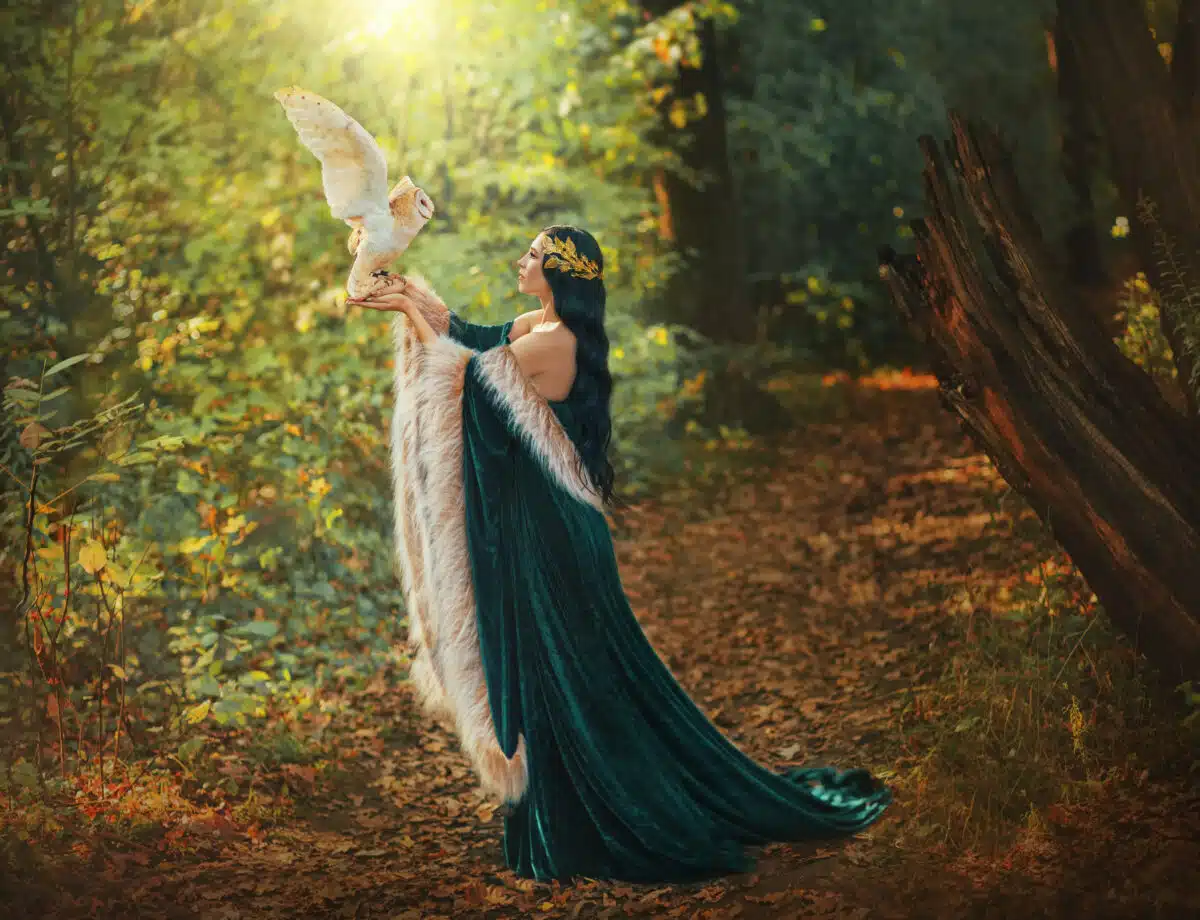
“How the Lion Became King” by Oliver Herford
Once in the hazy days of Yore
(I cannot very well be more
Explicit, since it was before
Dates were invented).
Once on a time, as I began
To say, the Lion formed a plan
To undermine the rule of Man,
Which he resented.
In answer to the Lion’s call,
His fellow-creatures, great and small,
From earth and air came one and all
In Trepidation.
He then delivered a discourse,
And proved with eloquence and force
Man was their one and only source
Of Tribulation.
“What is he—taken at his best?
A mere pretence! Not even dressed,
If we his puny form divest
Of spoil he’s looted.
The fact that we can far excel
His boasted Strength and Speed, as well
As Hearing, Sight, and Taste and Smell,
Is undisputed.
“I am not boasting when I own
for Strength I’d back my claws alone
Against his battle-axe of stone;
While, as to Vision,
’Tis nothing more than idle talk
To mention Man beside the Hawk—
The swift Horse, too, his clumsy walk
Views with derision.
“Only Man’s Ignorance, I’m bound
To say, could possibly confound
The Scent and Hearing of the Hound
With his dull powers;
As well his Taste, that gluts on fare
Like half-burnt Antelope and Bear,
With the fastidious Bee compare,
That sips the flowers.
“And yet,” the Lion said, “though we
Outshine Man to the last degree
Collectively, none holds as he
The Combination.”
In short, the moral of his theme
Was this: If Beasts would reign supreme
Their only practicable scheme
Was Federation.
And so, in view of Public Need,
The Hawk, Hound, Bee, and Horse agreed
To pool their Sight, Scent, Taste, and Speed;
And in due season
They made, pro tem., the Lion King,
Intrusting him with everything
Upon condition he would bring
Proud Man to reason.
The crafty Lion then proposed
To send an Embassy composed
Of those same four. As none opposed,
They started straightway,
And, coming to Man’s portals wide,
They entered, but no trace espied
Of Man, until (from the outside)
He closed the gateway.
And there he kept them till they swore
To be his servants evermore,
And work his will, and bow before
His rod of iron:
The Dog to watch, the Hawk to kill,
The Horse to carry and to till,
The Bee with sweets his jars to fill.
All save the Lion—
The Lion stayed at home—and purred,
And kept thenceforth the crown conferred
Pro tem., and nothing more was heard
About Conditions.
So ends my tale. Perchance it brings
Some light to bear on certain things—
Such as the Origin of Kings,
And Politicians.
“The Lion and the Gnat.” by Jean de La Fontaine
The Lion once said to the Gnat: “You brat,
Clear out just as quick as you can, now – s’cat!
If you meddle with me
I will not guarantee
That you won’t be slammed perfectly flat –
D’ye see?”
Said the Gnat: “Because you’re called King – you thing! –
You fancy that you will make me take wing.
Why, an ox weighs much more,
Yet I drive him before
When I get good and ready to sting.
Now, roar!”
Then loudly his trumpet he blew. And – whew!
How fiercely and fast at his foe he flew.
From the tail to the toes
He draws blood as he goes.
Then he starts in to sting and to chew
His nose.
Sir Lion was mad with the pain. In vain
He roared and he foamed and he shook his mane.
All the beasts that were nigh
Fled in fear from his cry.
But the Gnat only stung him again –
In the eye.
He looked and laughed as he saw – Haw, Haw! –
The Lion self-torn by his tooth and claw,
So His Majesty’s hide
With his own blood was dyed.
Said the Gnat: “Shall I serve you up raw –
Or fried?”
It’s finished. The Lion’s loud roar is o’er.
He’s bitten and beaten, he’s sick and sore.
But a spider’s web spread
Trapped the Gnat as he sped
With the news…He will never fight more –
He’s dead!
“The Lion and the Monkey.” by Jean de La Fontaine
The lion, for his kingdom’s sake,
In morals would some lessons take,
And therefore call’d, one summer’s day,
The monkey, master of the arts,
An animal of brilliant parts,
To hear what he could say.
“Great king,” the monkey thus began,
“To reign upon the wisest plan
Requires a prince to set his zeal,
And passion for the public weal,
Distinctly and quite high above
A certain feeling call’d self-love,
The parent of all vices,
In creatures of all sizes.
To will this feeling from one’s breast away,
Is not the easy labour of a day;
By that your majesty august,
Will execute your royal trust,
From folly free and aught unjust.”
“Give me,” replied the king,
“Example of each thing.”
“Each species,” said the sage, –
“And I begin with ours, –
Exalts its own peculiar powers
Above sound reason’s gauge.
Meanwhile, all other kinds and tribes
As fools and blockheads it describes,
With other compliments as cheap.
But, on the other hand, the same
Self-love inspires a beast to heap
The highest pyramid of fame
For every one that bears his name;
Because he justly deems such praise
The easiest way himself to raise.
‘Tis my conclusion in the case,
That many a talent here below
Is but cabal, or sheer grimace, –
The art of seeming things to know –
An art in which perfection lies
More with the ignorant than wise.”
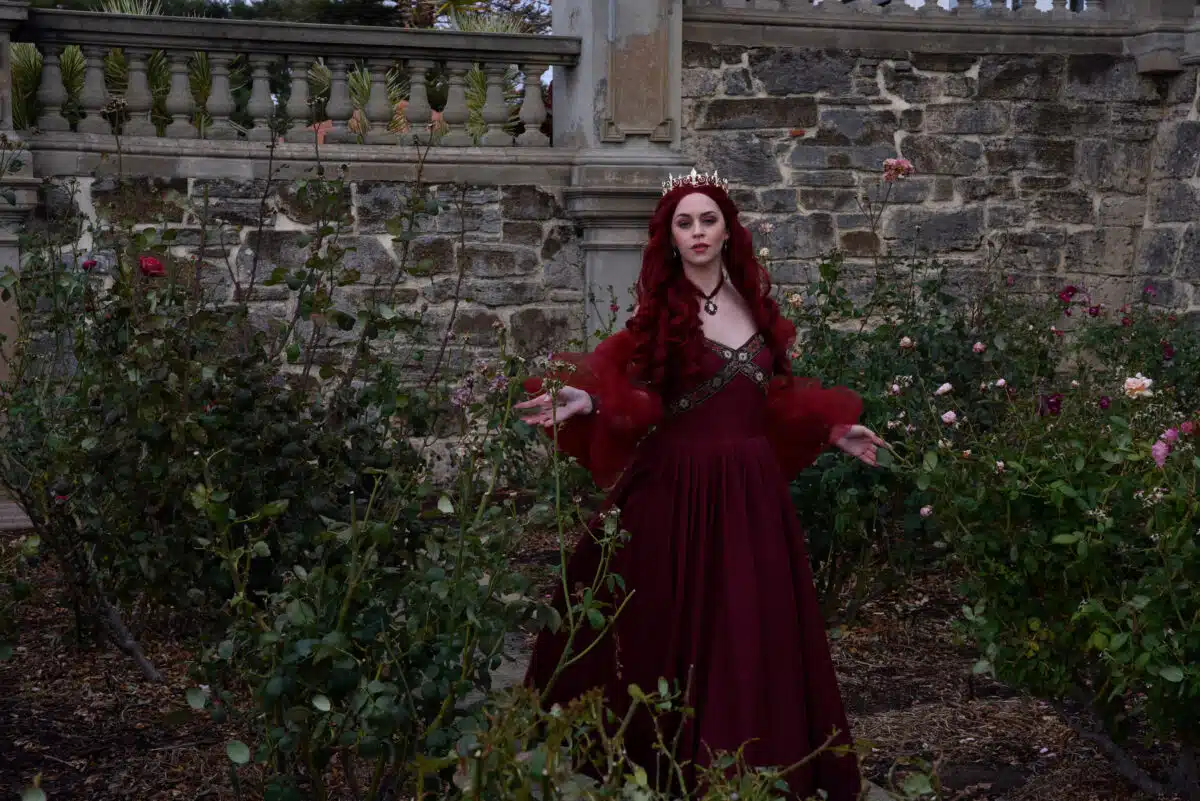
“The Lion’s Ride” by Ferdinand Freiligrath (Anonymous, Translator)
The lion is the desert’s king; through his domain so wide
Right swiftly and right royally this night he means to ride.
By the sedgy brink, where the wild herds drink, close couches the grim chief;
The trembling sycamore above whispers with every leaf.
At evening on the Table Mount, when ye can see no more
The changeful play of signals gay; when the gloom is speckled o’er
With kraal fires; when the Caffre wends home through the lone karroo;
When the boshbok in the thicket sleeps, and by the stream the gnu;
Then bend your gaze across the waste,—what see ye? The giraffe,
Majestic, stalks towards the lagoon, the turbid lymph to quaff;
With outstretched neck and tongue adust, he kneels him down to cool
His hot thirst with a welcome draught from the foul and brackish pool.
A rustling sound, a roar, a bound,—the lion sits astride
Upon his giant courser’s back. Did ever king so ride?
Had ever king a steed so rare, caparisons of state
To match the dappled skin whereon that rider sits elate?
In the muscles of the neck his teeth are plunged with ravenous greed;
His tawny mane is tossing round the withers of the steed.
Up leaping with a hollow yell of anguish and surprise,
Away, away, in wild dismay, the cameleopard flies.
His feet have wings; see how he springs across the moonlit plain!
As from their sockets they would burst, his glaring eyeballs strain;
In thick black streams of purling blood, full fast his life is fleeting;
The stillness of the desert hears his heart’s tumultuous beating.
Like the cloud that, through the wilderness, the path of Israel traced,—
Like an airy phantom, dull and wan, a spirit of the waste,—
From the sandy sea uprising, as the water-spout from ocean,
A whirling cloud of dust keeps pace with the courser’s fiery motion.
Croaking companion of their flight, the vulture whirs on high;
Below, the terror of the fold, the panther fierce and sly,
And hyenas foul, round graves that prowl, join in the horrid race;
By the footprints wet with gore and sweat, their monarch’s course they trace.
They see him on his living throne, and quake with fear, the while
With claws of steel he tears piecemeal his cushion’s painted pile.
On! on! no pause, no rest, giraffe, while life and strength remain!
The steed by such a rider backed may madly plunge in vain.
Reeling upon the desert’s verge, he falls, and breathes his last;
The courser, stained with dust and foam, is the rider’s fell repast.
O’er Madagascar, eastward far, a faint flush is descried:—
Thus nightly, o’er his broad domain, the king of beasts doth ride.
“The Lion.” by Jean de La Fontaine
Some time ago, a sultan Leopard,
By means of many a rich escheat,
Had many an ox in meadow sweet,
And many a stag in forest, fleet,
And (what a savage sort of shepherd!)
Full many a sheep upon the plains,
That lay within his wide domains.
Not far away, one morn,
There was a lion born.
Exchanged high compliments of state,
As is the custom with the great,
The sultan call’d his vizier Fox,
Who had a deeper knowledge-box,
And said to him, ‘This lion’s whelp you dread;
What can he do, his father being dead?
Our pity rather let him share,
An orphan so beset with care.
The luckiest lion ever known,
If, letting conquest quite alone,
He should have power to keep his own.’
Sir Renard said,
And shook his head,
‘Such orphans, please your majesty,
Will get no pity out of me.
We ought to keep within his favour,
Or else with all our might endeavour
To thrust him out of life and throne,
Ere yet his claws and teeth are grown.
There’s not a moment to be lost.
His horoscope I’ve cast;
He’ll never quarrel to his cost;
But then his friendship fast
Will be to friends of greater worth
Than any lion’s e’er on earth.
Try then, my liege, to make it ours,
Or else to check his rising powers.’
The warning fell in vain.
The sultan slept; and beasts and men
Did so, throughout his whole domain,
Till lion’s whelp became a lion.
Then came at once the tocsin cry on,
Alarm and fluttering consternation.
The vizier call’d to consultation,
A sigh escaped him as he said,
‘Why all this mad excitement now,
When hope is fled, no matter how?
A thousand men were useless aid, –
The more, the worse, – since all their power
Would be our mutton to devour.
Appease this lion; sole he doth exceed
The helpers all that on us feed.
And three hath he, that cost him nought –
His courage, strength, and watchful thought.
Quick send a wether for his use:
If not contented, send him more;
Yes, add an ox, and see you choose
The best our pastures ever bore.
Thus save the rest.’ – But such advice
The sultan spurn’d, as cowardice.
And his, and many states beside,
Did ills, in consequence, betide.
However fought this world allied,
The beast maintain’d his power and pride.
If you must let the lion grow,
Don’t let him live to be your foe.
